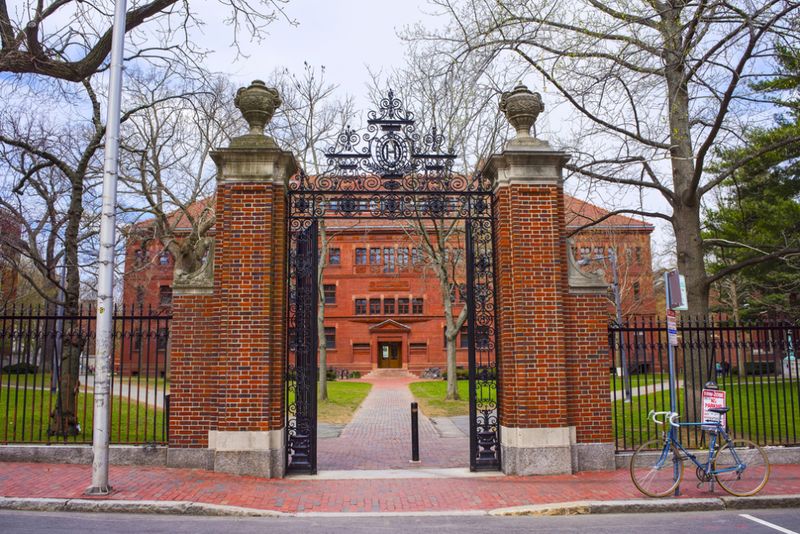What do Stanford, Harvard, Oxford, Cambridge, Brown and Cornell have in common besides being some of the best universities in the world? They are all environmentally aware and trying to combat climate change!
At Crimson, we want to honor some of the top universities in the US and UK that are doing their bit to look after the planet, and in particular, combat climate change. Their schemes range from divestment from fossil fuels, to student farms, and even attempts to dim the sun. Check out some of their groundbreaking initiatives below!

Brown University and Cornell University – Complete Divestment from Fossil Fuels
Earlier this year, and following a 3 year process, Brown University became the first Ivy League school to completely divest from fossil fuels! While it certainly wasn’t the first university in the world to be divested, their endowment of around $4 billion USD, of which 6.5% used to be fossil fuel investments, made this task truly monumental. University President Christina Paxson wants people to be “proud of Brown” for their progress, and hopes that environmentally minded people “will feel good about the decision”.
Now it seems that Cornell will be following in Brown’s footsteps as last month its board voted to divest from all of its direct investments in fossil fuels. Cornell entertains that the process will take several years, given 4.2% of the university’s long-term investments remain in fossil fuels. However, as this number falls to 0%, the university has endeavoured to put much of the spare capital into sustainable energy investments instead, and is certainly headed in the right direction.
For the universities with large endowments such as the Ivy League, the effects of divestment are both two-fold. Most directly, it removes billions of dollars of financial support for the fossil-fuels industry, making it harder for these companies to do business. However, it also signals to the wider community the university’s commitment to tackling climate change, and is an important step in their social responsibility.
We hope to see more universities commit to divesting in fossil fuels in the future, in particular those such as the Ivy League with large endowments.
University of Nottingham – Student Switch Off
Nottingham’s initiative is more of a competition, and the prize is lots of ice cream! The Student Switch Off is encouraging the catered student halls to save energy and recycle by offering the hall that saves the most energy and separates most waste from recycling an end of year shipment of Ben & Jerry’s ice cream. There are leaderboard updates that foster the year-long rivalry, and an educational program that gives the halls ideas as to how they can collectively improve their sustainability. Many students would agree that adding the element of competition makes sustainability an enjoyable team effort.

Stanford University – Stanford Energy System Innovations (SESI)
Stanford’s Energy System Innovations have some of the most cutting-edge technology anywhere in the world. In aggregate, the system has reduced campus emissions by 77% from baseline 2000 levels, and at full capacity is capable of producing more than double the power of the university’s current needs.
The system’s centerpiece is its central energy facility, equipped with heat recovery chillers and thermal storage tanks used to help heat and cool campus spaces and pools. Overall, this allows less energy to be expended on air conditioning, and significantly reduces emissions. Another important part is the use of clean solar energy, and most campus buildings are equipped with rooftop panels. The university also owns a large solar energy station in nearby Rosamond, and has another station in the works in Lemoore.

Oxford University – WARPit
Have you ever had an old piece of furniture you just had to throw away because you got a new one? Oxford’s initiative WARPit allows departments and colleges to list unwanted items such as furniture, office supplies, and equipment, and other members are welcome to contact, collect and reuse the item. Not only could it save participants money, but it avoids disposal costs and waste. Overall, the university believes that using this scheme avoids sending about 100,000 kg of waste to landfill, and saves its members around £100,000 a year.
University of California Davis (US) – Student Farm
True to their Californian influence, UC Davis runs a student farm on its campus. But don’t be fooled, the farm is not some small vegetable patch; it is 23 acres, or about the size of 15 football fields.
Part of the farm is dedicated to organic food production, which is sold to campus dining halls and through Community Supported Agriculture (CSA) shares. Some the farm is also dedicated to research and practical elements of university studies, and many of the flowers grown through research are sold back to the community. Student volunteers are always welcome to help out on the farm, and some students are even employed on a more permanent basis.

Cambridge University – Cycle To Work Loan Scheme
Cambridge encourages all its staff and students to take sustainable forms of transport such as walking or cycling around campus and the city of Cambridge. To support this effort, the university offers staff an interest-free loan of up to £2,500 under its Travel to Work loan scheme, and can cover a bicycle and associated safety equipment. Cambridge also invests thousands every year in maintaining cycleways, spaces for bike parking, and a ‘Dr Bike’ repair service. If walking or cycling is inconvenient, staff can instead use their interest-free loan to buy an annual bus or train pass, which also goes some way to reduce the number of cars on the road and reduce fossil fuels.

Harvard University – Dimming the sun…
We saved our favorite for last, and be warned – this is definitely a wacky and long-term initiative.
While it may sound like that episode of the Simpsons, Harvard are considering a plan to dim the sun to combat climate change. They theorise that filling the atmosphere with sunlight-reflecting atmospheric particles capable has the potential to lower global temperatures and reduce global warming. It is still in its modelling stage, and is highly controversial, but the university seems to be ramping up its research and tests regarding solar geoengineering.


